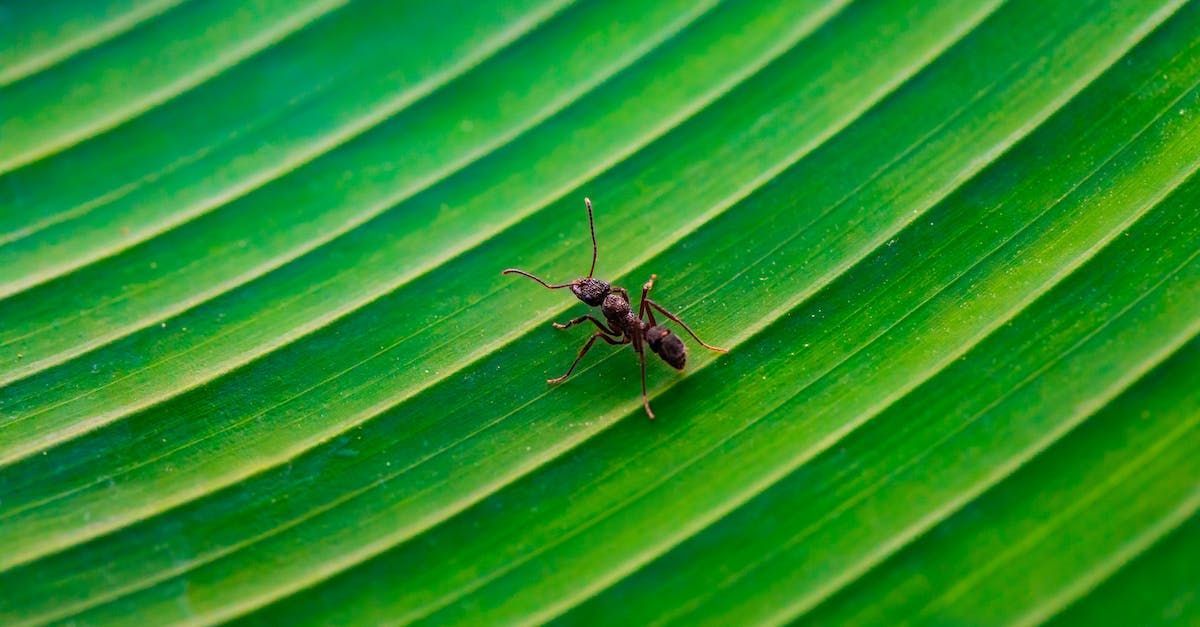Science - Ant communication
Ants are highly social insects that thrive in colonies. A typical colony consists of three distinct types of ants: the queen, male ants, and female worker/soldier ants. What's truly remarkable is that ants are capable of carrying objects that weigh up to 20 times their own body weight. While they lack ears, they possess an extraordinary ability to "hear" by sensing vibrations in the ground through their feet. Furthermore, ants do not possess lungs; instead, they rely on tiny openings throughout their bodies to allow air to enter and exit. To navigate their surroundings, ants leave behind an invisible pheromone trail, ensuring they can retrace their steps. Interestingly, worker ants are incapable of reproducing, meaning that if the queen were to perish, the colony would typically meet its demise a few months later. Ants communicate with one another through a variety of methods including scent, touch, motion, sound, and even trophallaxis.
Scent (Pheromones)
The primary way that ants communicate with each other is through chemicals called pheromones. Using their antenna to “smell” the pheromones, ants can communicate everything from colony activity to where food is located.
Touch
Ants not only rely on their sense of smell but also utilize their antennas to establish communication through touch. Some ants also use their front legs (called forelegs) along with their antenna when contacting each other.
Motion & Body Language
Ants employ a fascinating combination of pheromones, touch, and distinctive body language, such as elevating their abdomen, to effectively communicate. Comparable instances of human body language signals include giving a thumbs up or nodding one's head.
Sound
Certain species of ants utilize sounds as a means to establish communication amongst themselves. These audible signals can convey an array of messages, ranging from seeking assistance to enticing a potential partner.
Trophallaxis
Trophallaxis, the act of sharing food through mouth-to-mouth contact, serves as a prevalent means of communication among social insects such as bees, termites, and ants. In the case of ants, trophallaxis plays a vital role in facilitating the sharing of food among colony members, disseminating crucial information, and distinguishing nest mates from intruders.

Qur'an - Ant communication
Prophet Solomon (pbuh) is frequently referenced in the Holy Qur'an, where Allah bestowed upon him an abundance of knowledge, discernment, extraordinary abilities, and an unparalleled kingdom, all serving as Signs of his Greatness. What is truly remarkable, however, is that despite possessing such immense power and wealth, Prophet Solomon (pbuh) steadfastly stayed on the righteous path of Allah. He utilized his bestowed powers and kingdom to propagate the teachings of Islam. For a concise exploration of Prophet Solomon (pbuh), please refer to our informative article in the "Articles" section.
Summary of the verses below
The magnificent and formidable army of Prophet Solomon (pbuh) marched in perfect harmony, with each rank following the other in a meticulously organized manner. One can only imagine the exceptional management and organizational skills required to lead such a diverse and multifaceted army. As they ventured into a valley teeming with ant nests, one of the ants alerted its companions, advising them to seek refuge in their nests to avoid being inadvertently crushed by the army. In Verse 27:22, the prophet fully understood the ant's comprehension, and this realization brought a smile to his face as he expressed gratitude to Allah.
Some details to ponder:
- Ants have their ways of communicating with each other. In this example, it is related to a treat.
- Ants are intelligent creatures and can analyze situations and consequences of actions.
- Ants (similar to everything in the universe) are aware of Allah and His messengers. We see here that the ant knows the army belongs to Prophet Solomon (pbuh), and knows that they follow the Path of Allah and they are not oppressors by saying "that they may crush you
without knowing...". In other words, the army would not crush you purposefully and it may only happen if they don't know that you are here!
- The ant's knowledge about the behavior of the prophet and his army makes the prophet happy knowing that he has been performing his prophetic mission correctly since even a small creature such as this ant can witness to it.
- Finally, we learn from the story that even a small creature such as an ant should not be oppressed and we need to take care of everything around us including animals, plants, environment, etc.
وَحُشِرَ لِسُلَيْمَـٰنَ جُنُودُهُۥ مِنَ ٱلْجِنِّ وَٱلْإِنسِ وَٱلطَّيْرِ فَهُمْ يُوزَعُونَ
And assembled for Solomon were his soldiers of the invisible beings and men and birds, and then they were led forth in orderly ranks. 27:17
حَتَّىٰٓ إِذَآ أَتَوْا۟ عَلَىٰ وَادِ ٱلنَّمْلِ قَالَتْ نَمْلَةٌ يَـٰٓأَيُّهَا ٱلنَّمْلُ ٱدْخُلُوا۟ مَسَـٰكِنَكُمْ لَا يَحْطِمَنَّكُمْ سُلَيْمَـٰنُ وَجُنُودُهُۥ وَهُمْ لَا يَشْعُرُونَ
At length, when they came to a (lowly) valley of ants, one of the ants said: "O you ants, get into your habitations, lest Solomon and his hosts may crush you (under foot) without knowing it. 27:18
فَتَبَسَّمَ ضَاحِكًا مِّن قَوْلِهَا وَقَالَ رَبِّ أَوْزِعْنِىٓ أَنْ أَشْكُرَ نِعْمَتَكَ ٱلَّتِىٓ أَنْعَمْتَ عَلَىَّ وَعَلَىٰ وَٰلِدَىَّ وَأَنْ أَعْمَلَ صَـٰلِحًا تَرْضَىٰهُ وَأَدْخِلْنِى بِرَحْمَتِكَ فِى عِبَادِكَ ٱلصَّـٰلِحِينَ
So [Solomon] smiled, amused at her (ant's) speech, and said, "My Lord, enable me to be grateful for Your favor which You have bestowed upon me and upon my parents and to do righteousness of which You approve. And admit me by Your mercy into [the ranks of] Your righteous worshippers." 27:19
